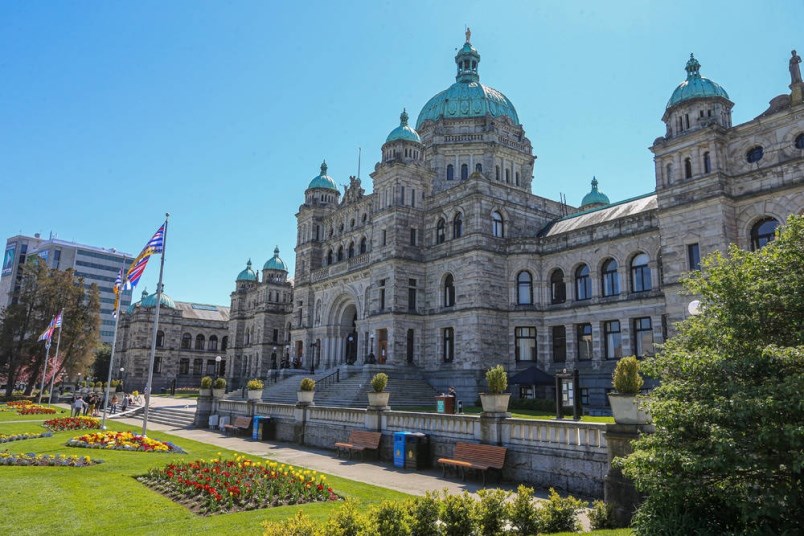The three-year fiscal plan released by the NDP government contains some jaw-dropping numbers that will either win the loyalty of B.C. voters or lead to a backlash against government spending.
Premier David Eby is clearly banking on the former view prevailing come the October provincial election.
Not only is his government projecting a record one-year budget deficit of $7.9 billion in the coming fiscal year, but the three-year fiscal plan shows cumulative deficits of $22 billion.
But it is the projected steep rise of total provincial debt over the next three years that is truly astonishing.
The debt is expected to increase from the current level of $104 billion to a whopping $165 billion by the fiscal year 2026-27.
The cumulative deficits account for just a third of that increase. The rest of the debt increase is attributable to capital spending on such things as schools, housing, hospitals, bridges, highways and other forms of infrastructure, including B.C. Hydro projects.
The NDP government is betting that, given a choice, more voters than not will opt to spend huge amounts of money on such projects and on expanded financial assistance programs.
The NDP’s approach is in stark contrast to that of its political opposition, and the differences could not be more obvious to voters.
B.C. United leader Kevin Falcon was quick to condemn the budget, calling it a “reckless, inflationary budget” that will lead to a higher cost of living. B.C. Conservative leader John Rustad called it a budget “that is quite frankly bankrupting the people of the future.”
Of course, Eby and company are mostly concerned in the immediate future, as in the vote that is just eight months away.
And that is where the true heart of the budget is strategically aimed at: middle income earners, young families and small businesses.
Not only is the B.C. Family Benefit expanding (for one year only) to give recipients an average additional $445 a year, but it crucially allows another 66,000 families to now be eligible for the program because the cutoff point has increased 25 per cent to $161,000 in annual family income.
Small businesses also got a break because the threshold for when the employer health tax takes effect was increased to payrolls of $1 million from $500,000.
Finally, two other strategic moves include a $100 B.C. Hydro credit, and free in vitro fertilization treatment, which will be good news for (mostly) young people trying to start a family.
For all the red ink in the budget (and there is a record amount of in evidence) the Eby government is going all-in when it comes to handing out goodies in an election year, rather than engaging in any kind of belt tightening.
Elections are about choices and the October vote is shaping up to be a clear choice between fiscal restraint and high government spending. We shall see which approach is favoured shortly after the polls close the night of Oct. 19.
Keith Baldrey is chief political reporter for Global BC.




